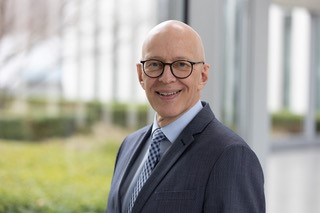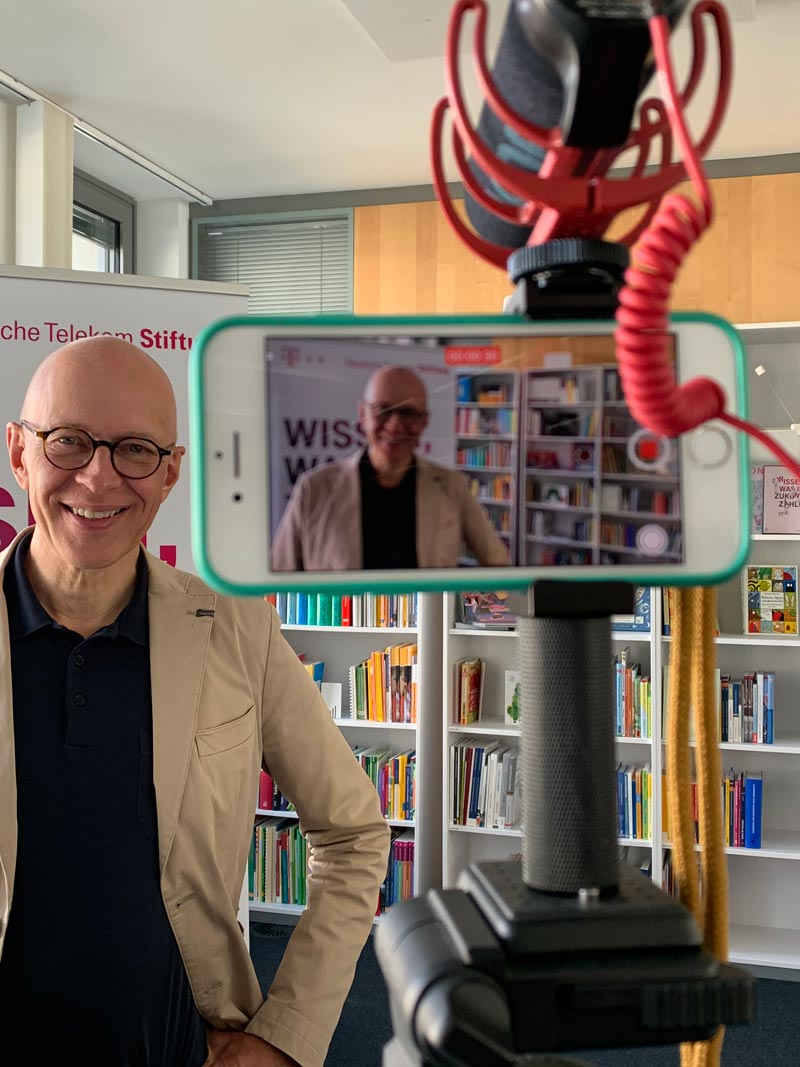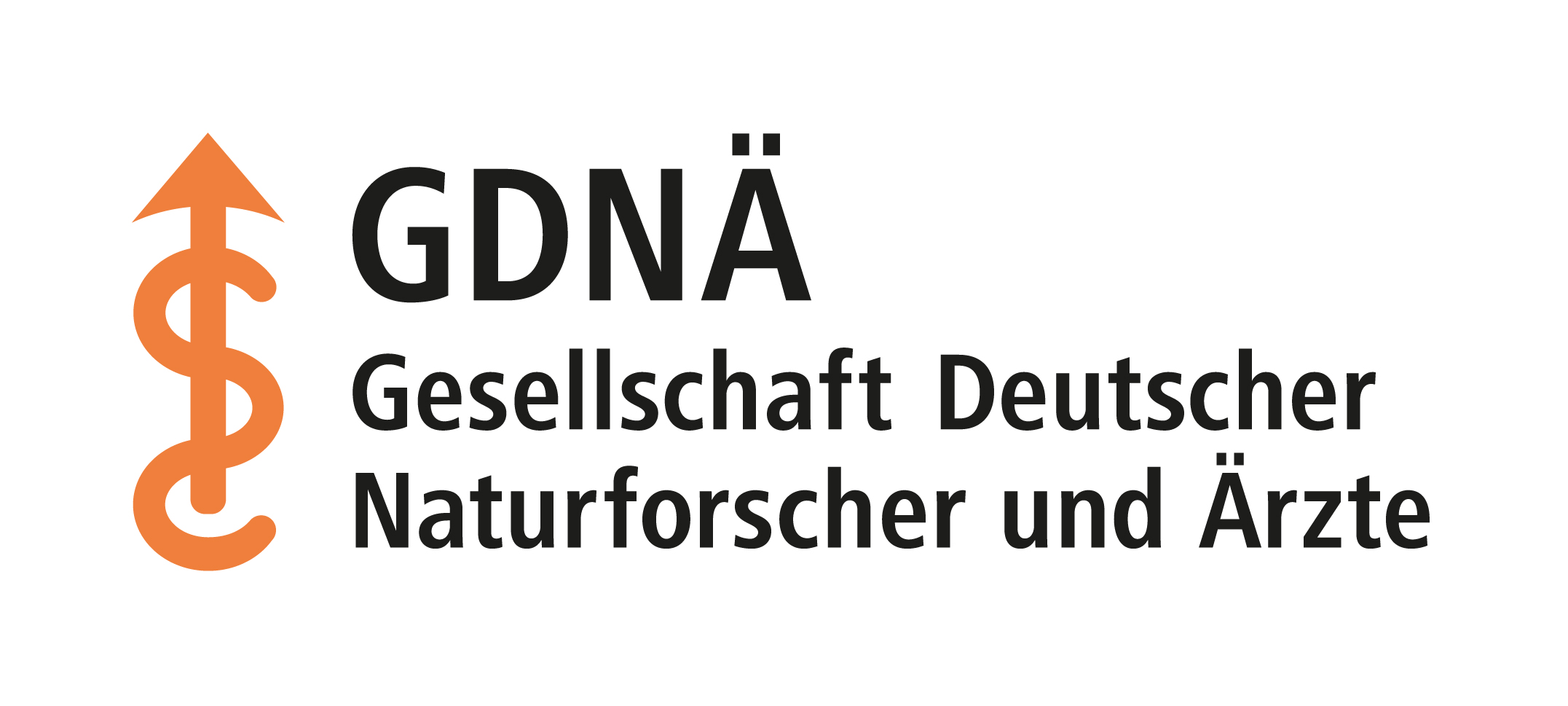‘Fuelling enthusiasm and promoting talent from the sidelines’
Ekkehard Winter, long-standing foundation manager and member of the GDNÄ Board of Directors, on new ways to improve STEM education in Germany.
Dr Winter, you became a member of the GDNÄ a good thirty years ago. Back then, in the mid-1990s, you were just starting your career in major German science foundations. What made the GDNÄ interesting to you?
It was definitely personalities such as Hubert Markl, Joachim Treusch and Detlev Ganten, who were successive presidents of the GDNÄ at the time. They are the pioneers of modern science communication in Germany, and we owe them a great deal. I attended GDNÄ meetings on a regular basis, and I was particularly impressed by the 200th anniversary celebrations in Leipzig three years ago. All these meetings offer high-quality lectures that thoroughly illuminate a topic – not just snippets of knowledge like at other events with a similar target audience.
Almost a year ago, you were appointed to the GDNÄ Executive Board. What does that mean for you?
I have been appointed for two years, until the end of 2026. I enjoy contributing my decades of experience in mathematics and science education. My network of contacts – whether in foundations, universities, research museums or politics – could also be helpful. So far, I have attended two GDNÄ strategy meetings and each time I have been impressed by the productive discussions among peers and the refreshing contributions of young members.
You know many organisations for young people in science. What is your impression of the still relatively young jGDNÄ?
Its members are bursting with ideas and want to achieve something – including for their own careers. This is similar elsewhere and very welcome. I also think it’s good that young people organise their own events between GDNÄ meetings. But it’s also part of the bigger picture that the initiative currently thrives on the enthusiasm of particularly committed members. But what happens when they go abroad? Or when they hardly have any time for voluntary work? Is there a risk of the organisation falling apart? To prevent this, a kind of liaison office will be needed in a year or two – a hub that holds everything together. All this costs money, and without funding it will be difficult to achieve. I’m happy to help think about this.

© Marlene Anders
Are there any funding opportunities on the horizon?
Let’s take foundations, for example. Many of them are now less involved in programmes for individuals due to strategic decisions and also for cost reasons; they tend to support structures instead. This would therefore be a good fit for a jGDNÄ hub. However, there are many other funding opportunities available through civil society or government institutions, some of which can be combined. What is missing is an overview that highlights the strengths, weaknesses and special features of the various offers. Creating a ‘funding map’ would be a great topic for a bachelor’s thesis!
One suggestion from the jGDNÄ is a mentoring programme that brings young people together with established GDNÄ members from science and industry. A good idea?
A very good idea! I am reminded of an experience I had as managing director of the Telekom Foundation. We set up a programme that brought together doctoral students with leaders from various fields, including top managers from industry. Each mentee had a mentor who was very enthusiastic about participating and often came from a different discipline than their mentee. It worked extremely well. But it has to be well organised and requires enthusiasm, time and money.
The jGDNÄ is an umbrella organisation that also houses the GDNÄ’s long-running and successful school programme. How do you rate the programme?
From what I have seen in recent years, it has developed wonderfully. It plays an important role in the ecosystem of STEM education, i.e. in the fields of mathematics, computer science, natural sciences and technology. Such programmes strengthen the fascination for subjects that are urgently needed but have always lacked young talent. Fundamentally, this is unlikely to change in the future. This makes programmes for schoolchildren all the more important, as they spark enthusiasm and nurture talent from the sidelines, so to speak.
The jGDNÄ runs several programmes, including a small teacher programme run by the GDNÄ. Do you see any potential here, and if so, how can it be exploited?
There are incredibly dedicated teachers, especially in the STEM subjects. I know from conversations with Paul Mühlenhoff, the head of the GDNÄ programme, that this is also the case there. These teachers often really enjoy getting together outside their own schools and exchanging ideas. In their home schools, they are often seen as troublemakers because they like to try new things and raise standards. One idea, for example, would be a teachers’ café at the next meeting in Bremen in 2026. Established and aspiring STEM teachers with an interest in exchange and cooperation would be invited. I have coordinated several meetings of this kind and have always been amazed at how little teachers know about initiatives in other federal states and how keen they are to take up good ideas. Our federal education system is so provincial! We should change that, and the GDNÄ could make an important contribution here.
You retired two years ago. In addition to your honorary positions, including at the GDNÄ, you are now studying philosophy of science at the University of Münster. Was that a good decision?
Yes, definitely. Until now, I didn’t have the time to delve into the history of ideas and theoretical constructs in the natural sciences. However, these areas should not only be of interest to retirees; in my opinion, they should also be included in the teaching of STEM subjects at schools and universities. With its long history, the GDNÄ could also be a good place for this.

© Deutsche Telekom Stiftung
Dr Ekkehard Winter, biologist, long-standing foundation manager and appointed member of the GDNÄ Board of Directors.
About the person
Dr Ekkehard Winter is involved in the National Education Forum and advises the National STEM Forum; both institutions are important players in education policy. From 2005 until his retirement in 2023, Winter was managing director of the Deutsche Telekom Foundation, where he played a key role in shaping its profile as a leading educational foundation in the fields of mathematics, engineering and natural sciences (STEM). Prior to that, the doctor of biology worked as programme director and deputy secretary general of the Stifterverband für die Deutsche Wissenschaft (Donors’ Association for the Promotion of Sciences and Humanities in Germany). Ekkehard Winter is one of the founders of the nationwide initiative Wissenschaft im Dialog (WiD) and the EuroScience Open Forum (ESOF). In 2017 and 2018, he was a founding member of the Forum Bildung Digitalisierung (Education Digitalisation Forum), which promotes digital transformation in the school system. From 2017 to 2023, Winter was co-spokesperson for the National MINT Forum e.V. Ekkehard Winter has been a member of the GDNÄ since the mid-1990s. and was appointed to the board of directors in 2024.

© Deutsche Telekom Stiftung
